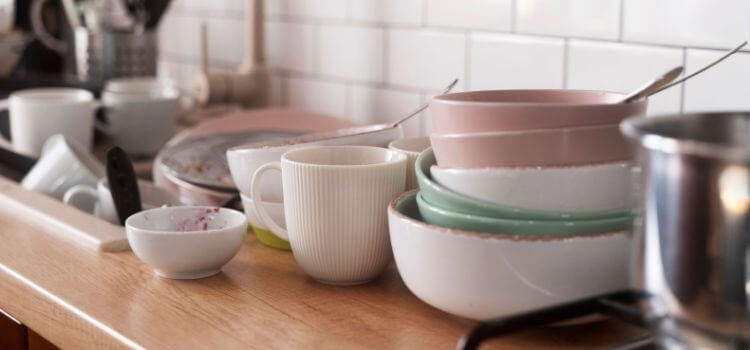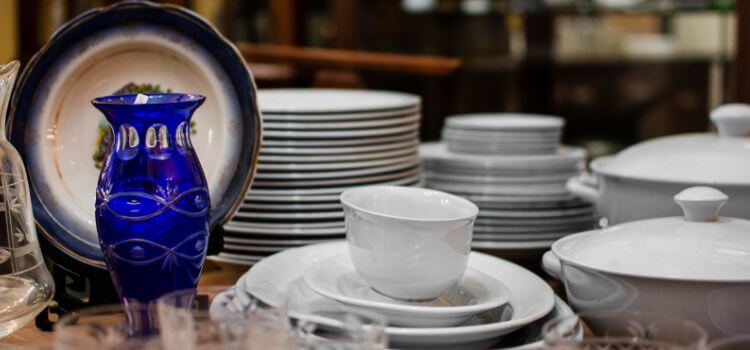As an Amazon Associate, I earn from qualifying purchases.
As an Amazon Associate, I earn from qualifying purchases
Ceramic Cookware: Pros and Cons—A Comprehensive Guide
When it comes to outfitting your kitchen with the best cookware, ceramic cookware has undoubtedly caught your attention.
The allure of its natural, non-stick surface and vibrant designs makes it a popular choice among home cooks and professional chefs alike.
But before you dive headfirst into the world of ceramic cookware, it’s essential to weigh the pros and cons to ensure it’s the right fit for your culinary needs.
In this in-depth guide, we’ll explore the advantages and disadvantages of ceramic cookware, shedding light on everything you need to know to make an informed decision.
So, let’s embark on this culinary journey and uncover the secrets behind ceramic cookware’s rising popularity!

Detailed: Pros and Cons for Ceramic Cookware:
Ceramic cookware has become a popular choice for many home cooks and professional chefs alike.
Its unique properties and stylish appearance have sparked curiosity among culinary enthusiasts.
In this article, we’ll explore the pros and cons of ceramic cookware to help you decide whether it’s the right addition to your kitchen.
Pros:
- Non-Stick Surface: Ceramic cookware boasts a naturally non-stick surface, making cooking and cleaning a breeze.
- Healthy Cooking: Unlike some non-stick coatings, ceramic is PTFE and PFOA-free, ensuring healthier meals.
- Even Heat Distribution: Ceramic distributes heat evenly, reducing the chances of hot spots and unevenly cooked food.
- Versatile: The versatility of ceramic cookware extends beyond the hob and into the oven.
- Aesthetically Pleasing: Its colourful and stylish designs can add a touch of elegance to your kitchen.
- Quick Heating: Ceramic heats up rapidly, reducing cooking time and energy consumption.
- Durable: If you take good care of your ceramic cookware, it will survive for decades.
- Easy to Clean: Most food residue slides right off, requiring minimal effort for cleaning.
- Safe at High Temperatures: Ceramic can withstand high cooking temperatures without emitting harmful fumes.
- Environmentally Friendly: Its natural composition and longevity make it an eco-conscious choice.

related topic:
best ceramic cookware for gas stove
Cons:
- Fragility: Ceramic cookware can chip or break if dropped or mishandled.
- Price: High-quality ceramic cookware can be expensive compared to other options.
- Limited Metal Utensils: Stay away from metal cutlery if you don’t want to risk scratching your table.
- Seasoning Required: Some ceramic cookware may need periodic seasoning to maintain its non-stick properties.
- Not for Induction Cooktops: Most ceramic cookware is not compatible with induction stoves.
- Weight: Ceramic cookware can be heavier than alternatives like stainless steel.
- Colour Fading: Vibrant colours may fade over time with frequent use and washing.
- Thermal Shock: Damage or cracking may result from sudden temperature shifts.
- Not Broiler Safe: Many ceramic cookware pieces are not suitable for use under the broiler.
- Learning Curve: Beginners might experience sticking initially until they get accustomed to cooking with ceramic.
By weighing these benefits and drawbacks, you can decide if ceramic cookware is right for you.

Conclusion:
In the world of cookware, ceramic pots and pans have earned their place as a popular choice for a variety of reasons.
With its non-stick surface, healthy cooking attributes, and stylish designs, it’s no wonder that ceramic cookware has
captured the attention of both amateur home chefs and seasoned culinary experts.
The pros of ceramic cookware, such as even heat distribution, versatility, and easy maintenance, make it an attractive option for those seeking

an enjoyable cooking experience. Its eco-friendly composition and quick heating capabilities further contribute to its appeal in the kitchen.
However, as with any kitchen tool, ceramic cookware comes with its fair share of cons, including fragility, cost, and the need for careful handling.
Compatibility issues with certain stovetops and the occasional learning curve can also be factors to consider.
Ultimately, the decision to invest in ceramic cookware depends on your cooking style, preferences, and budget.

If you prioritize healthy, non-stick cooking and appreciate a touch of elegance in your kitchen, ceramic cookware may be an excellent addition
to your culinary arsenal. Just remember to handle it with care, and it can serve as a reliable companion in your culinary adventures for years to come.
Amazon and the Amazon logo are trademarks of Amazon.com, Inc. or its affiliates.
Leave a Reply